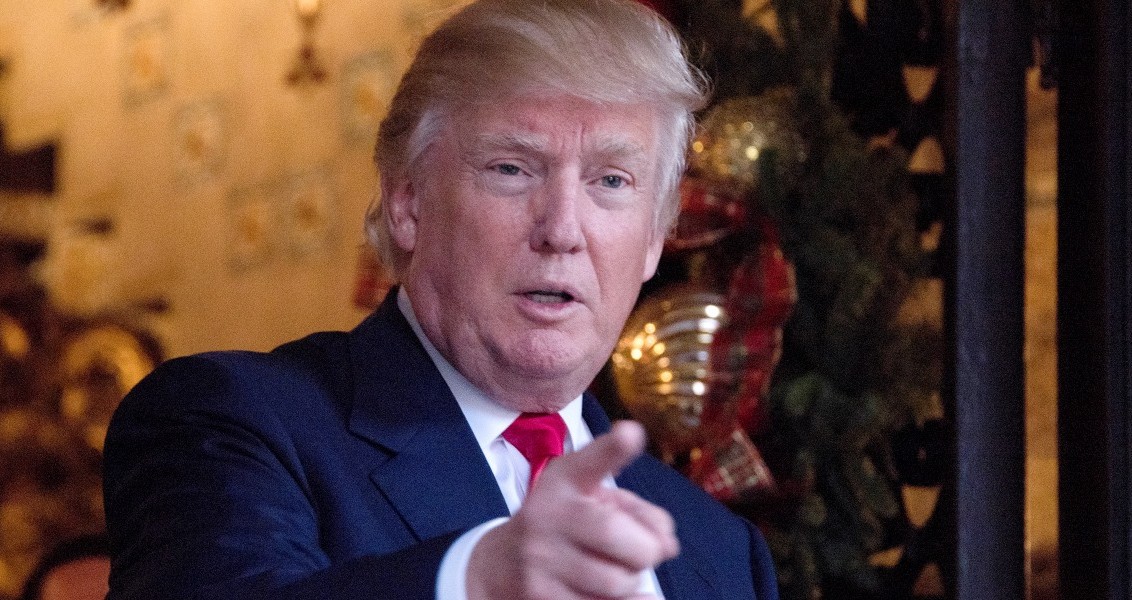
Kelly's Appointment and Trump's Struggle for Power
Trump ousting Priebus as chief of staff and appointing Kelly is a development showing Trump's efforts to take the upper hand in the White House
Share
In his book "The Gatekeepers: How the White House Chiefs of Staff Define Every Presidency," filmmaker and journalist Chris Whipple tells the stories of living chiefs of staff and how they influenced the presidency in the U.S. As the second most powerful position in the U.S. administration, each of these people have had unlimited access to the president and have a significant role in shaping the agenda of the president, his meetings and his policies.
The book starts with an extraordinary occasion: The gathering of most of the living chiefs of staff at the White House during the transition of the Obama administration after the November 2008 elections. The group met to give recommendations to incoming Chief of Staff Rahm Emanuel before he officially assumed this role. Among those present, there were interesting suggestions for Emanuel. There are some principled recommendations, such as "Always, always be straight and honest with the president of the United States. … Always tell him what he may not want to hear - because frankly a lot of people in the White House will always tell the president what he wants to hear," advice from Leon Panetta, the chief of staff for President Bill Clinton. Some others were more practical; former U.S. Vice President Dick Cheney for instance advised Emanuel to control the vice president at all costs. Considering the challenges from different institutions, Andrew Card, George W. Bush's chief of staff, stated: "A lot of people aren't interested in protecting the institution of the presidency, Article 2 in the Constitution. In fact, it's under attack almost all the time from Article 1, which is Congress, and Article 3, the courts. And there really aren't too many people at the White House that pay attention to that." Probably one of the most realistic accounts of the chief of staff in this meeting was from Donald Rumsfeld, former Secretary of Defense and chief of staff to President Gerald Ford. He said: "Immediately pick your successor. … And always remember: You are not indispensable. "Last week, it was seen how real the prospect of losing a job is when someone is chief of staff to the president. The people that occupy this position become the first target of any form of failure or challenge to the administration. Reince Priebus became the latest of those last week. President Donald Trump on Friday announced that he was ousting Priebus from the chief of staff position and appointing John Kelly, the secretary of Homeland Security for the position. With this decision, Priebus became the shortest-serving chief of staff in the modern presidency.
There were debates about the fate of Priebus due to the problems he was facing both from different members of the administration and his record on legislation. The failure to repeal the Affordable Care Act definitely did not help him during this process. The direct relationship some members of the administration had with the president meant they bypassed the chief of staff, making it difficult for him to control information and access to the president.
Now General Kelly will be in that office, and there are questions in regards to his possible challenges in the administration. And those challenges are not so different from the problems Priebus faced. First, due to his lack of experience in passing legislation, there will be a definite learning period in relations with Congress. Also, some members of the administration, such as White House Communications Director Anthony Scaramucci, reportedly directly answer to the president, which means the chief of staff will continue to be bypassed. Moreover, there are question marks as to whether there will be any change in the presidential leadership style of Trump himself. If he continues with the current level of engagement and control, it will be hard for General Kelly to empower himself and gain control of the agenda and the White House.
There are arguments in favor of this new appointment as well. So far, many have pointed to General Kelly's outstanding military record as evidence of his management skills and a possible disciplinarian in the White House. They expect Kelly to bring some order to the White House and policymaking process. Respect for him and for his service from both sides of the aisle is also considered a positive sign for his future relations with parties in Congress. Furthermore, his collegial relations with both National Security Adviser H.R. McMaster and Secretary of Defense James Mattis may generate a better working relationship between the institutions these individuals lead and consequently clarify confusion concerning foreign and security policy making. But of course all of this depends on President Trump's delegation of authority and power to General Kelly.
It is not uncommon for a new administration to face significant crises in the first few months of their tenure. There are various examples of domestic and foreign policy crises new administrations have had to go through in their first months in office, and in most instances changes in the administration were necessary. However, as time goes by the cost of these challenges for an administration can increase if they are not contained, controlled and resolved. Developments in the White House after this appointment will be very important for the administration and U.S. foreign policy. Considering challenges such as the lack of strategy in Syria, the war against terror and North Korean missile tests, continuing rumors about the competition for power among members of the inner circle or difficulty generating a decision in regards to crises in different parts of the world will cause serious problems for the Trump administration and its policies.
[Daily Sabah, July 31, 2017]
Tags »
Related Articles






